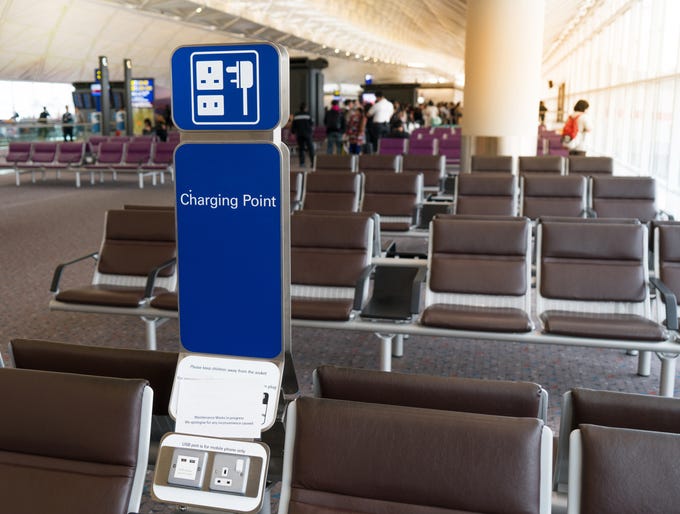
LANSING (WWJ) -- Hackers are taking advantage of public charging stations by infecting charging ports and connectors with malware, allowing them to skim personal data from devices.
In a Monday news release, Michigan Attorney General Dana Nessel warned consumers of this latest scam and provided tips for protecting yourself from cyber-thieves.
According to the FBI, "juice jacking" is a data-theft tactic that can occur when an electronic device is plugged into a public charging station like those found in airports or hotel lobbies.
Because anyone can access these public charging stations, bad actors may secretly install malware into the ports or connectors. When unsuspecting people plug in their phone or laptop, that malware infects the device. It can then lock the device or export personal data and passwords.
Juice jacking can happen in two ways:
-- Plugging your device into an infected public USB port with your own charging cable
-- Using an infected cable provided by someone else
Nessel says the FCC has also reported incidents where infected cables were given away as promotional gifts or freebies.
The AG called these schemes "nefarious," as people usually wouldn't think twice about using a public charging station.
She hopes spreading awareness of juice jacking scams will help reduce the number of victims.
"Knowing the risks and alternatives will allow them to protect themselves and their personal information," said Nessel.
Her office provided the following tips to avoid becoming a juice jacking victim:
-- Avoid using a public USB charging station. Use an AC power outlet instead.
-- Bring an AC outlet charger, car chargers and your own USB cables with you when traveling.
-- Carry a portable charger or external battery.
-- Consider carrying a charging-only cable (which prevents data from sending or receiving while charging) from a trusted supplier.
-- If you plug your device into a USB port and a prompt appears asking you to select "share data" or "charge only," always select "charge only."
"Be vigilant when charging your devices in public because you never know who or what is waiting to snatch your data when you least expect it."
More information on malware and how to avoid or remove it from your devices can be found in the full news release.



